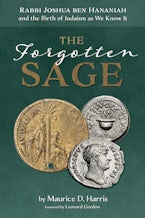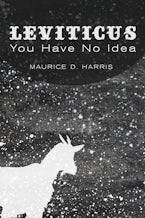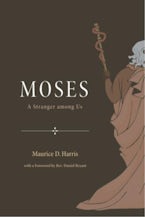The Forgotten Sage
Rabbi Joshua ben Hananiah and the Birth of Judaism as We Know It
Foreword by Leonard Gordon
Imprint: Cascade Books
Just after the Roman destruction of Jerusalem in 70 C.E., there lived a poor and ugly nail-maker who was also, for a time, the leading rabbi of his generation. His name was Joshua ben Hananiah, and he helped give us the Judaism we know--the complicated, word-filled tradition of debates, multiple viewpoints, and endless questions. Through his humanity, humility, and occasional audacity, Joshua helped set Judaism on its course towards becoming the decentralized, multi-opinionated, exile-surviving, other-religion-respecting, pragmatic-yet-altruistic, wounded-yet-hopeful religion that it is at its best. And yet, inside and outside the Jewish community, few people know about him.
This book wants to change that. In these pages, people of all faiths or backgrounds will find accessible and vivid translations of some of the most stunning stories in the Talmud and in Midrash. Rabbi Maurice Harris is a friendly guide through the texts and dramas of early rabbinic Judaism, providing general audiences with clear and compelling explanations of complex narratives, legal issues, and historical contexts. Venture inside this book and discover Rabbi Joshua ben Hananiah, one of the bravest and humblest heroes you'll ever meet in sacred literature.
Maurice D. Harris is a rabbi and writer based in Glenside, Pennsylvania. His previous books are Moses: A Stranger among Us (2012) and Leviticus: You Have No Idea (2013), both from Cascade Books.
“As in his previous books. Rabbi Harris takes material that is known only as dry and antiquated—if known at all—and works his magic. What emerges is lively and contemporary—worthy of being known by many!”
—Nancy Fuchs Kreimer, Director, Multifaith Studies and Initiatives, Reconstructionist Rabbinical College
“In this accessible and vivid biographical study, Rabbi Joshua ben Hananiah emerges as a humble, wise leader who promotes an ethos of vigorous debate in the disorienting years following the destruction of the Second Temple. Through a close, incisive reading of the foundational stories of rabbinic Judaism, Harris forges astute connections between the challenges of that era and contemporary, post-Holocaust Judaism. An unforgettable portrait of a little-known sage and his times.”
—Rena Blumenthal, author of The Book of Israela



